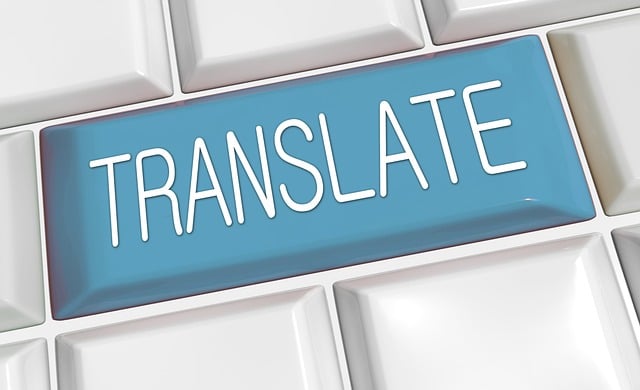
Translating legal contracts requires a deep understanding of contractual language, specialized terminology, and cultural nuances. This involves interactive language practice, research into target jurisdiction laws, and quality assurance measures. Accurate translations avoid misinterpretations and legal pitfalls. Qualified human translators specializing in legal contracts and target languages are essential for complex documents. Interactive Language Practice offers heritage documentation services with real-time tools and skilled translators for accurate legal phraseology. Selecting qualified translators with industry expertise and certifications is key. Meticulous review, learning new terms swiftly, and leveraging global expertise ensure consistent, precise translations.
Effective translation of legal contracts is paramount for global businesses. Navigating complex language and jurisdiction-specific terminology can be challenging. This guide outlines essential steps to ensure precision. From grasping contractual language fundamentals to verifying translator expertise, each phase is crucial. We explore best practices, including leveraging accurate tools, handling technical jargon, and cross-checking translations. Remember that meticulous translation is key to avoiding legal pitfalls and fostering successful international partnerships.
- Understand Contractual Language Basics
- Research Target Jurisdiction's Legal Terms
- Ensure Accurate Translation Tools & Professionals
- Handle Technical Jargon and Legal Phrasings
- Verify Translators' Expertise and Experience
- Cross-Check Translations for Consistency and Accuracy
Understand Contractual Language Basics

Understanding the fundamentals of contractual language is paramount when aiming to translate legal agreements accurately. Legal contracts often employ specialized terminology, intricate phrases, and nuanced structures that demand careful consideration during translation. Familiarizing yourself with this unique vocabulary is a critical first step. For instance, what seems like a simple term in one language might have complex implications or even different meanings altogether in another.
Additionally, being adept at identifying context-specific expressions and idioms is essential. Legal contracts frequently incorporate poetic license in translation, where wording is crafted to convey a specific legal intent or nuance. This requires not just a solid grasp of both languages but also an understanding of the jurisdiction’s legal framework. Engaging in interactive language practice can significantly aid in mastering this aspect of translation, especially when coupled with finding us at sensitive topic translation tips and making corrections for errors. Conference interpretation services, though geared towards real-time communication, can also offer valuable insights into how legal terms are structured and expressed across different languages.
Research Target Jurisdiction's Legal Terms

When translating legal contracts, it’s crucial to research the target jurisdiction’s specific legal terms and terminology. Each country or region has its own set of legal language nuances that can significantly impact the accuracy and validity of the translation. This involves delving into local laws, regulations, and industry-specific jargon to ensure a comprehensive understanding of the context. By employing these strategies, translators can overcome the language barrier and provide clear, precise translations that meet the stringent requirements of the target market.
Moreover, implementing quality assurance in translation processes is essential for maintaining high standards. Utilizing advanced tools and an expert review process, such as visiting us at expert review process translating art and poetry anytime, can help identify subtle errors or cultural nuances that might be overlooked. This ensures not just accurate translation but also a seamless integration of legal contracts within the target jurisdiction’s framework. Efficient project workflow, combined with these breakdown translation techniques, facilitates timely delivery while upholding quality in technical manuals and complex legal documents.
Ensure Accurate Translation Tools & Professionals

Ensuring accuracy when translating legal contracts is paramount to avoid misinterpretations and potential legal issues. While technology offers various tools, such as machine translation platforms, they are often insufficient for complex documents. For critical translations, particularly in international business communications, relying on qualified human translators is essential. These professionals possess the expertise to navigate not only language barriers but also cultural nuances and legal terminology specific to each jurisdiction.
Crowdsourcing translations might seem appealing, especially for simpler texts, but it can lead to inconsistencies and errors. Multilingual communication mastery begins with understanding that “one size doesn’t fit all.” Beginner translation strategies often overlook the importance of culture-specific expressions in translation. To guarantee precision, seek out translators who specialize in legal contracts and are proficient in the target languages. Find us at field research for accurate translation to discover how our team ensures every contract is translated with meticulous care and cultural sensitivity.
Handle Technical Jargon and Legal Phrasings

When translating legal contracts, handling technical jargon and legal phrasings is a delicate task that requires precision and expertise. Legal documents often contain specialized terminology unique to specific jurisdictions or industries, making accurate translation crucial for maintaining the intended meaning and ensuring compliance with local laws. Effective translation goes beyond word-for-word substitutions; it involves understanding the context and nuances behind these terms.
Interactive Language Practice offers a comprehensive solution for navigating this challenge through its heritage documentation translation services. Utilizing real-time translation tools and leveraging language-specific marketing strategies, we ensure that every legal phrase is conveyed accurately across diverse languages. Our human translators, skilled in translating literature and adapting content for website globalization, bring a deep understanding of cultural nuances and legal terminology to the table. Visit us at interactivelanguagepractice.com to learn more about how we can help you manage your global legal translation needs effectively.
Verify Translators' Expertise and Experience

When translating legal contracts, it’s paramount to verify the expertise and experience of your chosen translators. This involves assessing their qualifications, such as language pair proficiency, specialized knowledge in relevant fields like law or finance, and any professional certifications. Reputable translation services often provide detailed translator profiles, highlighting their skills and areas of expertise.
Moreover, consider the human translator’s skills when translating literature with cultural nuances and poetic license. Efficient project workflow is also crucial for handling technical manuals, ensuring timely delivery while maintaining accuracy. For complex projects, discuss the approach with your translation partner. They might leverage advanced tools and give us a call at International Business Communications to offer culture-specific expressions in translation, enhancing both quality and consistency.
Cross-Check Translations for Consistency and Accuracy

Ensuring accuracy and consistency in legal translation is paramount to avoid potential pitfalls and misunderstandings. Cross-checking translations involves meticulous review and comparison with the original document, especially when dealing with complex terminology and nuanced phrases. This process helps identify and rectify any discrepancies that may arise from literal interpretations or the nuances of different languages.
Professional translators should master new words quickly and employ advanced translation techniques to capture the intended meaning accurately. Semantic considerations play a crucial role in legal translations as they ensure that the translated text conveys the exact same legal implications and intent as the source document. By visiting us at localizing content for global markets anytime, you can tap into these expertise, ensuring your legal contracts are not just words but precise tools for international communication.
Effective translation of legal contracts requires a deep understanding of both the source and target languages, as well as familiarity with the jurisdiction’s specific legal terminology. By following these steps—from grasping basic contractual language to cross-checking translations for accuracy—you can ensure that legal agreements are not only translated but also conveyed with precision and integrity, facilitating clear communication and minimizing potential disputes across borders.





